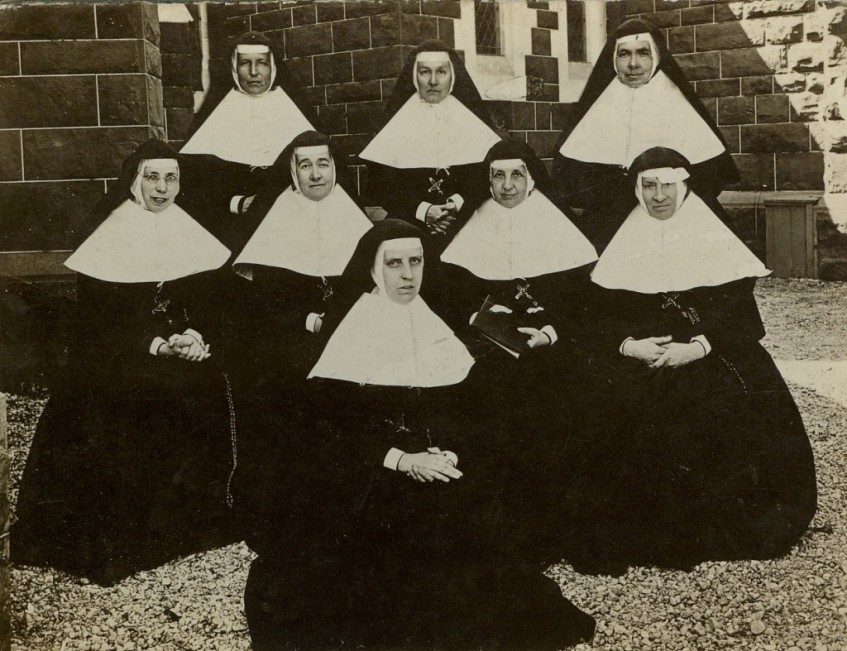140 years of Loreto in Australia

The strong foundation Mother Gonzaga and her Sisters, photographed in 1903, laid continues to have a profound influence on hundreds of thousands of Loreto women educated since her arrival in 1875. PHOTO; Supplied
By Elouise Hahn
This year, Loreto celebrates 140 years in Australia, thanks to our pioneering Loreto Sisters from Ireland.
Travelling to an unknown and distant land from the comforts of her home in Ireland, Mother Gonzaga Barry stepped off the SS Somersetshire ship onto Australian soil on 19 July 1875.
This was to become a defining moment in the history of Loreto that continues to shape its future.
The arrival of Loreto’s pioneering Sisters was a response to an appeal by the Bishop of Ballarat, Dr O’Connor, asking the Sisters to lead a mission opening the first Loreto School in Ballarat, Victoria.
The sacrifices Mother Gonzaga and her nine companions made in leaving behind family, friends and other loved ones to enter the unknown are still being felt today by Loreto women and men touched by her profound legacy.
“Mother Gonzaga would have been very fearful to travel so far from home, as she was not a well-travelled person. However, she had a steely determination to serve God and would have answered any call made to her,” said Loreto Province Archivist Robin Scott.
The 59-day journey to Victoria was long and arduous to say the least, with accounts from the Sisters saying “the ship was constantly heaving and lurching”, resulting in those on board, especially Mother Gonzaga, being in a perpetual state of sickness.
One man died on their voyage from bronchitis: as Mother Gonzaga wrote in her diary, “the great cold and damp here generally make an attack fatal. On the last voyage, two gentlemen passengers died”.
To understand fully Mother Gonzaga’s character, it is important to appreciate her background. Born into a middle-class family in Wexford, Ireland in 1834, she was the eldest of seven children and known fondly as ‘Mamie’.
Her vocational journey started at the young age of 19 when she travelled to Rathfarnham and was received as a Novice in 1854.
While still a Novice, at just 22 years of age she became Mistress of the Day School at Rathfarnham and, at 25, was appointed Mistress of Novices at Gorey.
In 1867, she was appointed Superior of Gorey and, just five years later, founded the Loreto Convent in Enniscorthy.
Not long after establishing the Convent, she was asked to lead a mission to Australia.
It is believed Mother Gonzaga was chosen because of her experience and success in strong leadership roles and her charismatic personality – two characteristics which continue to be instilled in Loreto women today.
During her 40 years in Australia, she founded 13 schools (including kindergarten, primary and boarding schools) and two teacher training colleges, as well as taking over the running of at least seven parish schools.
Mother Gonzaga believed that what the world needed are wise, loveable and well-educated women.
She was a pioneer in creating a very broad curriculum that ensured a holistic education to bring the best out of her students so they could “make the world a better place for having lived in it”.
Her success didn’t come without its challenges, as Mrs Scott commented, “she met huge financial difficulties and sometimes clerical obstruction to foundations and missions”.
“Physically, her deafness was a great burden to her as it would have been isolating.
“But with characteristic positive outlook, she always trusted that all would be as God intended.”
The strong foundation she and her Sisters laid continues to have a profound influence on hundreds of thousands of Loreto women educated since her arrival in 1875.
As we celebrate this great milestone, we give thanks for our Loreto Sisters, friends, colleagues, and particularly all who, through our Loreto schools, have continued to imbue a culture of justice in personal and social relations, authenticity in our words and actions and felicity in the joy of life.
